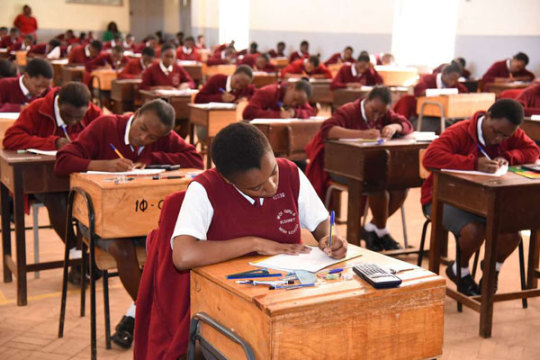
KCSE Results Controversy: Wajir County Has Never Produced an A Grade Since 1963
Mandera South MP Abdul Ebrahim has made a claim that Wajir county in Kenya has never achieved an A plain grade in the Kenya Certificate of Secondary Education (KCSE) exams since the country gained independence in 1963.
Speaking at a session of the National Assembly Education Committee, Ebrahim expressed concern about the dismal results received in the region. He attributed the poor performance to the practice of moderation by the Kenya National Examinations Council (KNEC) during the grading process.
Ebrahim stated that he was aware that KNEC conducts moderation, which he believes disproportionately affects Wajir county. He questioned why students from the region are subjected to moderation when they deserve higher grades.
He claimed that the council reduces the grades of students who initially score an A plain, resulting in them receiving lower grades such as A-minus or B plus.
In response to Ebrahim’s concerns, KNEC CEO David Njengere clarified that the council follows international standards in moderating exam results. He mentioned that during the release of the 2022 exams, observers from South Africa, Zambia, and Uganda were present to benchmark the standards used by KNEC.
Ebrahim’s claim about Wajir county’s performance in KCSE exams raises concerns about educational equity and fairness in the grading process. It highlights the need for further investigation into the impact of moderation on exam results in different regions of Kenya.
It also underscores the importance of ensuring that students are fairly evaluated based on their actual performance, without any bias or discrimination.
Further discussions and actions may be necessary to address the concerns raised by Ebrahim and ensure that all students in Kenya have equal opportunities to succeed in their education.
KCSE Exam Results Stand – Ezekiel Machogu
Education Cabinet Secretary Ezekiel Machogu addressed the recent controversy surrounding the 2022 Kenya Certificate of Secondary Education (KCSE) examination results in a hearing before the National Assembly Education and Research Committee.
Machogu defended the integrity of the examination and insisted that the results were credible, stating that the grades obtained by students were genuine and deserved.
The probe by the committee was initiated following a national outcry over the results, which saw Nyambaria High School achieving the highest mean score of 10.90, surpassing traditionally top-performing schools.
Mang’u High School had the highest number of candidates scoring As at 82, while Nyambaria had 28 candidates achieving the coveted grade.
Machogu challenged the members of parliament (MPs) to provide credible evidence of cheating. The committee chair, Julius Melly, stated that some of the evidence would be heard in camera at a later date.
During the hearing, Machogu acknowledged that there were several cases of irregularities reported, including 20 suspected cases of collusion among examiners, candidates found in possession of unauthorized examination material, and attempted smuggling of mobile phones into the examination rooms in 14 centers. Additionally, three cases of impersonation were reported.
However, Machogu argued that these irregularities were not significant enough to warrant the cancellation of results. He also claimed that some schools, particularly in Nyamira and Kisii counties, had been unfairly targeted, and that some schools had published erroneous mean scores to falsely indicate better performance.
Machogu provided statistics on the distribution of grade As in different counties, stating that Siaya County had the highest number of grade As in the Nyanza region with 72, followed by Homa Bay and Migori with 62 and Kisumu with 59. Kisii had 51 As, while Nyamira had 30. He also stated that Kisii and Nyamira counties had the least number of grade As in the region.
The CEO of the Kenya National Examinations Council (Knec), David Njeng’ere, dismissed claims that candidates had access to marking schemes beforehand, stating that examiners prepare the marking schemes only after the candidates have taken the examination. He also mentioned that moderation of the examination results is carried out in adherence to international standards.
The committee has held public hearings in which various stakeholders have presented evidence of irregularities in the examinations. The presentation from the Ministry of Education, represented by Machogu and Njeng’ere, was the last before the MPs retreat to write a report on the matter.
KCSE Results Controversy: Wajir County Has Never Produced an A Grade Since 1963